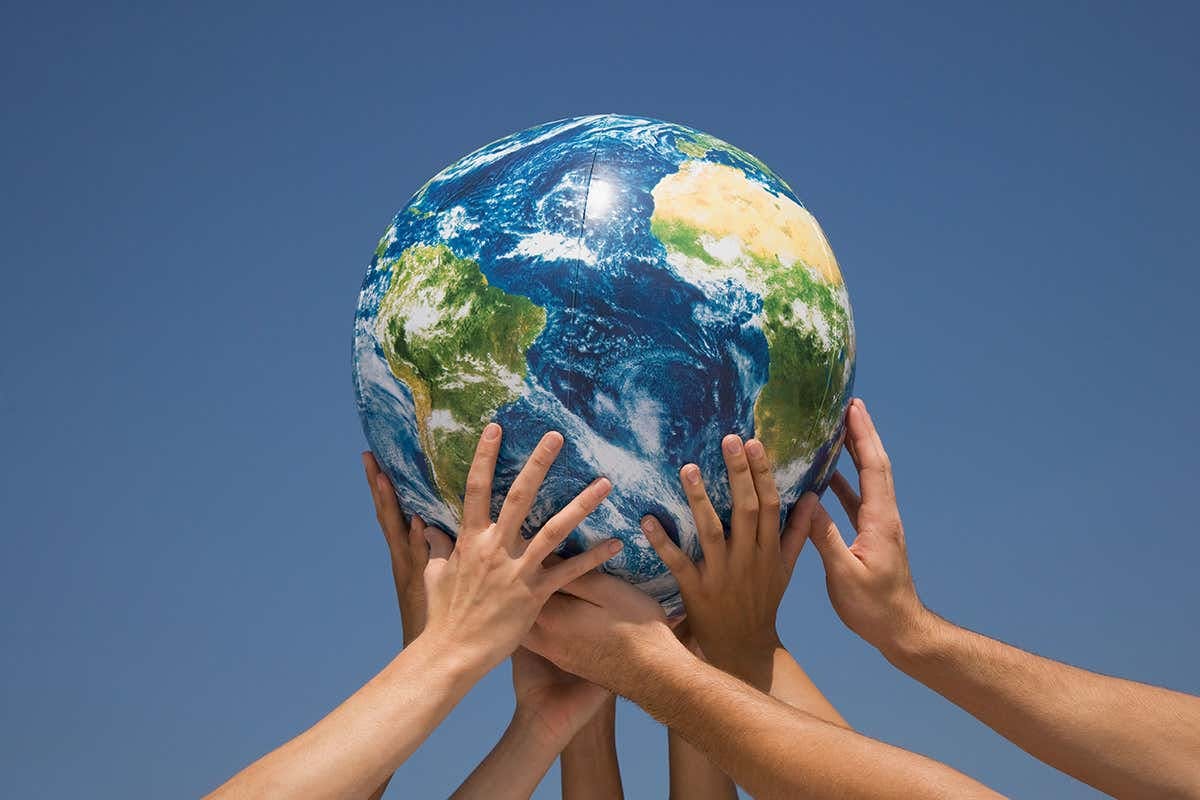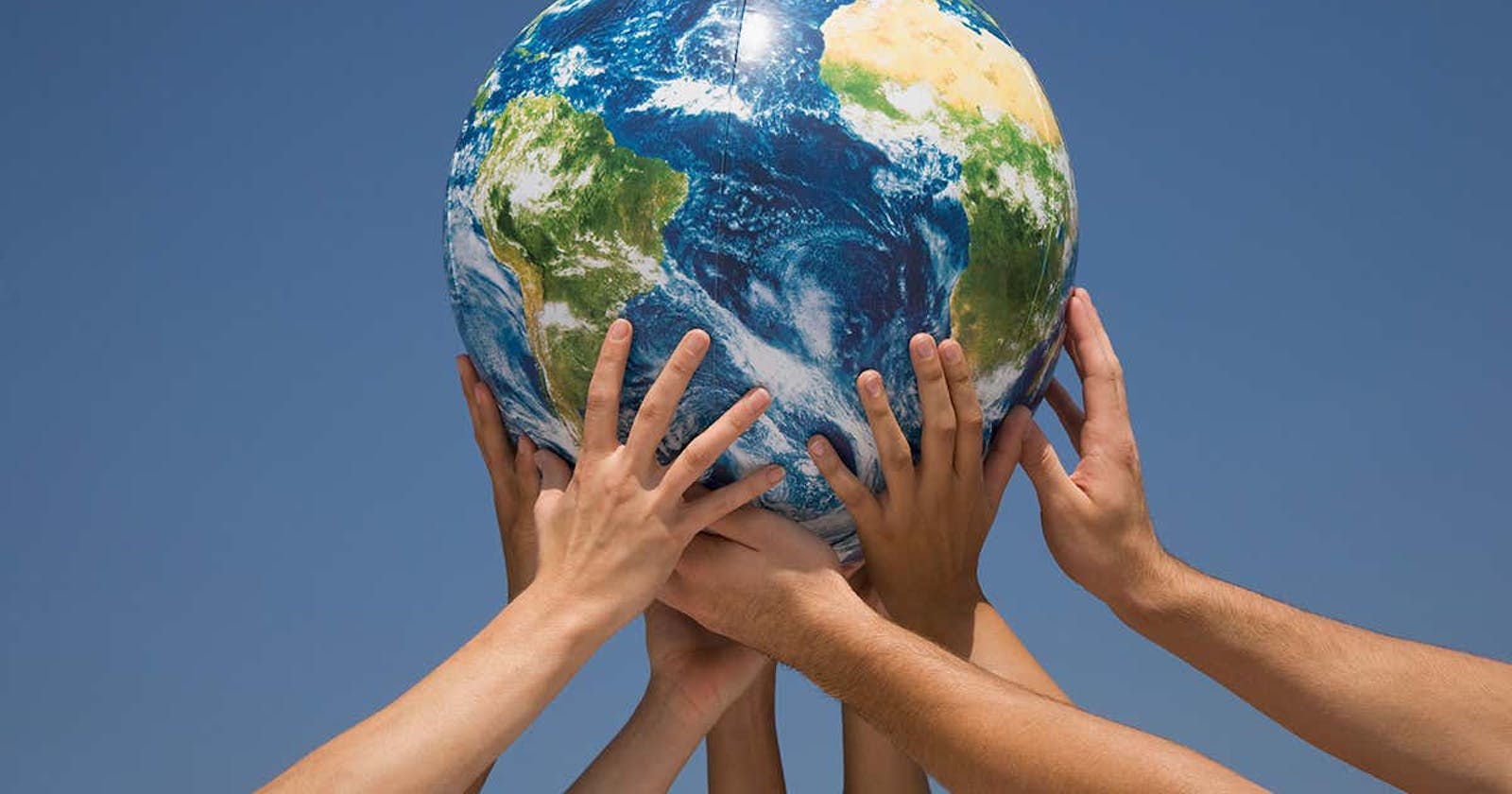
It’s no surprise to anyone that the Earth is in danger. We’ve around 7 years left on our hands until we’ve irreversibly rolled our blue world down the lane of destruction. If this isn't scary enough, a quick glance at the climate clock will probably jerk you to your senses. They show the time that we’ve left to make the decisive switch to ‘sustainable’ practices. As of now, we’re finishing off in 7 months what it takes the planet a year to replenish. And it’s not just the likes of the lifeless fuels we’re losing- according to WWF, the current extinction rate is 1000 to 10,000 times what it should’ve been. It’s not difficult to realise that the situation is dire.
You might notice a lifeline in the climate clock, the percentage of the total energy usage of the world contributed by renewable sources, a change that can be our redemption. The lifeline is rising, but not fast enough. Now, what can you, a KGPian, do to save the world? Enough to make a difference.
We conducted a survey amongst the student community of IIT Kharagpur to know their opinions on the deterioration of climate and ways to live sustainably. The results of this survey have been used throughout this article to understand the various issues students face in adapting to a more sustainable lifestyle. The solutions provided have been curated keeping in mind all these issues and will hence provide a hassle free way for students to slowly transition to a more ecofriendly lifestyle.
Are students aware of the climate change impacts we are facing?
The impacts of climate change are visible to us in multiple aspects of nature, but are we paying attention to them? Around 61.5% of students state that they can notice
Abnormal disruptions in weather patterns
Degradation in air quality
The gradual disappearance of animals and birds like squirrels, sparrows
Accumulation of huge amounts of plastic waste on seasides
Around 20% stated that they might have noticed some of these but aren’t too sure. All of these impacts in nature are a very real threat that can displace mankind if we continue with overconsumption of resources.
How can climate change impact us?

Why are people not able to adopt the swaps?
The recent survey conducted by us, showed some interesting facts about how eager KGPians are to adapt to a sustainable lifestyle. While most are aware of the various methods for sustainability, many are unable to implement them in their daily lives. According to many, the major hindrance to not accepting these is inconvenience. People question the durability of local eco-friendly items compared to those produced on a much larger scale by branded companies. There is still a good percentage (13%) of students who do not know various alternatives, and as per quite a few others (about 7%), some are not affordable. Few agree that the swaps are efficient, while according to some, these are ‘impractical’.
However, all of us can come to this common conclusion that these methods are still not popular enough in the market to be adopted on a mass scale. The lack of availability is yet a challenge. Besides, the common people are easy prey to illegal greenwashing, owing to a lack of awareness. Another alarming aspect observed in this survey, is some students are simply indifferent to the idea of sustainable development. Some honestly confessed that these small steps could bring about a considerable change, but people’s negligence, consciously or unconsciously, is a threat. Eco-friendly thoughts may strike many people, but at the end of the day, most are carried away by the needs and necessities of their daily schedule and eventually follow that which is more convenient for them.
How can we start taking baby steps towards being conscious citizens as students?
Considering all of the reasons mentioned in the survey, there still are ways for students to try and bring about change in ways that might seem small but are impactful. Here is a list of these tiny ways students can implement in their day-to-day lives without hassles!
P.S. - Many of these might already be the practices that are carried out in your homes. But doing them once you come back to campus- is what will be the game-changer!
- Cutting down on fast fashion: This is a multifaceted swap that can seem very intimidating but immensely helpful if done correctly. It doesn’t necessarily imply that you give up on all clothing you possess and suddenly transition to slow and ethical fashion. That is impractical and not feasible either. Instead, breaking it down into smaller, doable steps is the way to go.
Firstly, try and reduce the number of clothes you buy. You don’t need to buy a pair of jeans at every sale! “The most sustainable clothing is the one already in your wardrobe!”. Use the clothes you already have as much as you can. Extending the average life of clothes by just three months of active use per item would lead to a 5 to 10 per cent reduction in each item's carbon, water and waste footprints.

Try switching to online note-making instead of using notebooks for everything.
Download videos. Streaming videos on YouTube, Netflix etc., leads to a greater carbon footprint. Downloading videos instead reduces this amount significantly.
For takeaway meals (when the mess food becomes too unbearable), take your own containers along with you to avoid plastic packages. Let BYOB mean Bring Your Own Bottles!
If you forget to do the former and end up getting the takeaway containers, reuse them as much as you can. Also, repurpose them for snacks you may need to munch on during the ‘bhaat’ sessions once we get back to campus!
Reduce the amount of time spent in showers. Try to switch to bucket baths instead.
Carpool whenever you can. Public transport is another viable option. Cycling is the best way KGP blesses us, but till we are back to campus, carpooling is what’ll make the difference!
These are the most basic swaps which all of us can implement in our daily schedules. The more sustainably we live, the more conscious we become of the impact we leave on the environment. This means that we start to adopt more and more sustainable lifestyle changes.
In the long run, what truly matters is not these bunch of swaps, but the thought process that we need to foster that makes us think of the potential risks to the environment before everything we do.
Every time we go out and buy that one plastic bottle - we must question ourselves,
“How impactful will this one bottle be on the environment?”
“How justified is it on my part to buy this?”
This is how each of us can play a role in rescuing the environment and building a better future for ourselves.
This article was penned down by a motivated team of students, who have taken end-to-end ownership of the process, from preliminary research to graphic design. Credits to Ashish Rekhani, Diya Sarkar, Saloni Gole, Sharannya Ghosh, Srishty Gandhi, Thoravi Pise and Yatindra Indoria for all the hard work put in. We hope that this collaborative effort enables each one of us to lead a more sustainable lifestyle!

